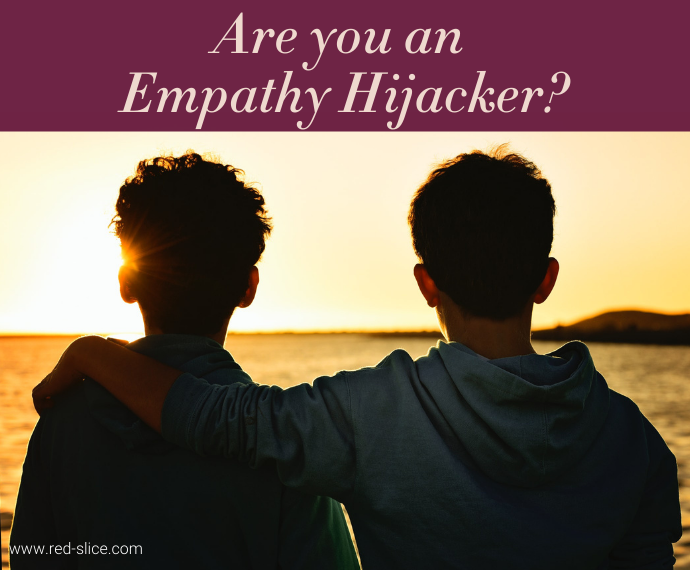“We can relate to people without hijacking the conversation” Communication expert Sharon Steed.
Sharon and I connected recently as we were both on an empathy panel together. I’m in love with her work transforming company culture with empathy. She has a great LinkedIn course about communicating with more empathy as well, and that’s where I got this insightful quote.
People often assume that sharing similar experiences with someone is empathy. Not quite. Empathy is more about listening and sitting with someone to see things from their point of view. Unless asked, it’s not about you hijacking the conversation and making it about you.
You know you’re doing this if you ever tell someone: “I know how you feel, when this happened to me, I…..”
I say this with love, because I think we all (myself included) do this in an effort to show people we understand them. It’s our way of active listening and our intention is to make others not feel so alone. So I get it.
During my long recovery from a ruptured brain aneurysm, and even today, as I struggle with life-long cognitive impairments as a result, well-intentioned people do this all the time:
“You have to write everything down? Oh my gosh, I forget things all the time, too. You’re just getting older like the rest of us!”
“Wow, now you know how I feel, not remembering dates and faces.”
“I have bad short-term memory too – it must just be mommy brain!”
All of these are well-intentioned attempts to connect. But all this does is diminish another person’s pain and experience. For me, when someone says this, it negates everything I went through, all the therapy, education, and struggle, as if it’s no big deal.
Somewhere along the line, we mistakenly learned that sharing your own similar experience was empathy. It’s not. (Tweet This!)
Empathy is about perspective taking, information gathering, and actively listening. It’s about acknowledging another person’s experience. Yes, where appropriate one can share lessons learned or how they got through something, but the initial sharing is not the time. Just be patient. Give the person room to process and share first before you dive in with wisdom or advice.
Your response is about you, not the other person. You want to feel more comfortable, or “fix” things for the other person. That is not what they need. They need to feel heard.
You can understand someone without hijacking the conversation.
Sharon also shared this gem in her LinkedIn course: “Patience means slowing down your response to judgement. Without patience, there is no empathy” (Tweet This!)
When someone is sharing their experiences, here are 4 things you can say instead:
- Tell me more…
- Wow, that must have been a lot to go through. How does it make you feel?
- What I hear you saying is…..is that right or do you want to share more? I’d love to understand more.
- How can I help?/What support do you think you might need?
Got more? Tweet me @redslice or DM me on Instagram @redslicemaria




